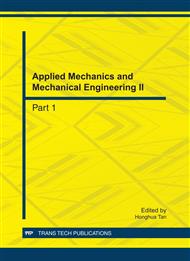p.946
p.952
p.958
p.962
p.967
p.974
p.981
p.988
p.995
EEG Characters Research to Different Personality People
Abstract:
Purpose: To find the relationships between different personality people and their EEG. Method and Procedures: Using the psychology test method of Uchida-Kraepelin psycho-diagnostic test (UK Test) to sort the experimenters into different groups according to three aspects: startup capacity, excitement capacity and changeable capacity. At the same time, the experimenters’ EEG was measured. By analyzing the frequency and energy of EEG, the EEG characters of different personality people were found. Results and Conclusions: (1) EEG character of startup capacity is the amount of β-wave energy in the first several minutes of the experiment. (2) EEG character of excitement capacity is the amount and developing trend of α-wave energy in the experiment. (3) EEG character of changeable capacity is the fluctuation of β-wave energy. The results of the research can be used to increase the precision and adaptability of the BCI system.
Info:
Periodical:
Pages:
967-973
Citation:
Online since:
November 2011
Authors:
Keywords:
Price:
Сopyright:
© 2012 Trans Tech Publications Ltd. All Rights Reserved
Share:
Citation:


